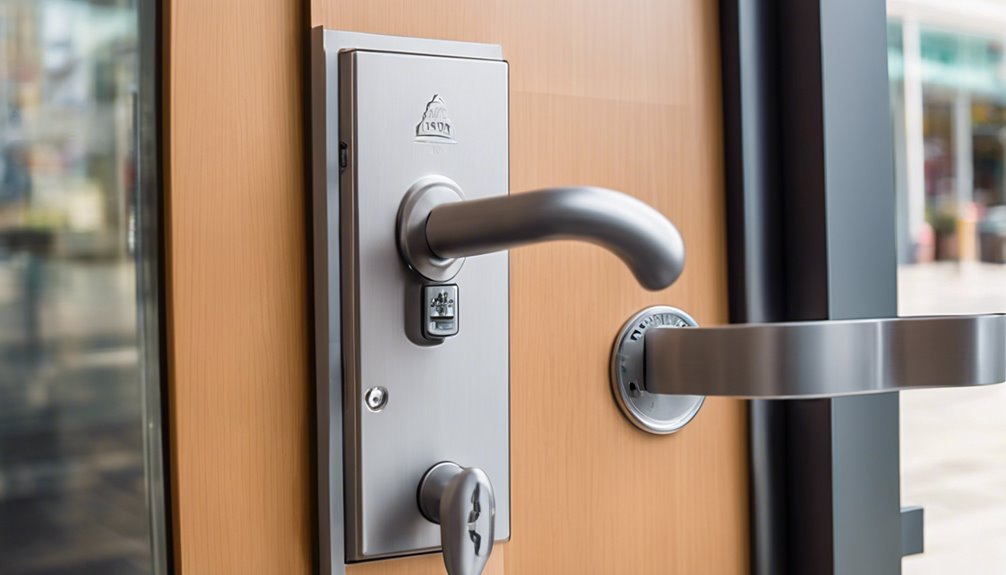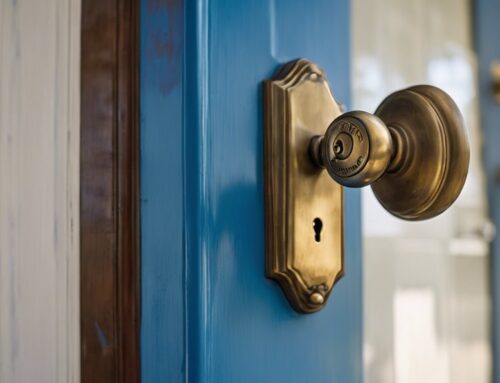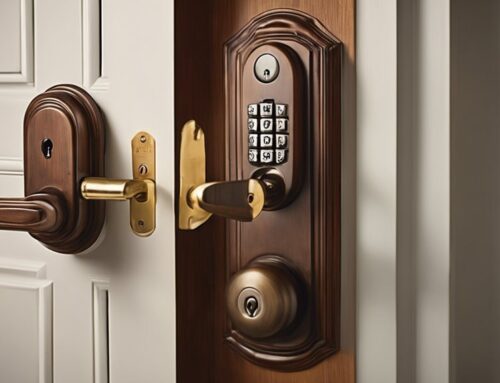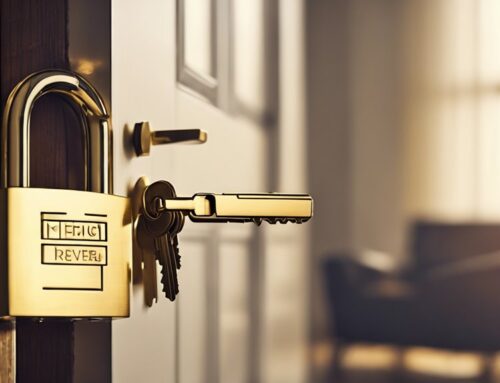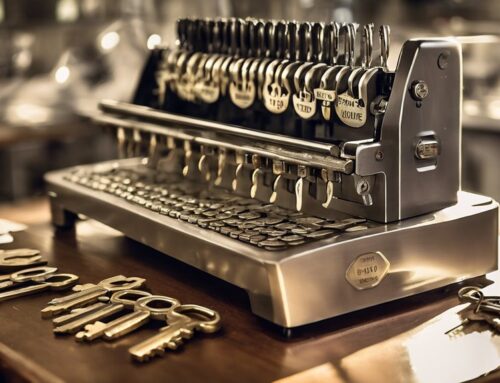Imagine a customer struggling to open a door, frustration mounting while their needs go unnoticed. It's an uncomfortable reality that many New Jersey businesses face when they don't prioritize ADA compliance for locks. You're not just avoiding legal pitfalls; you're also creating a welcoming atmosphere that respects everyone's right to access. So, what specific features should your locks have to guarantee compliance and safety? Understanding the nuances of these requirements can greatly impact your business and its reputation in the community.
Key Takeaways
- Evaluate current locks to ensure they meet ADA standards for one-handed operation and minimal force requirements (under 5 pounds).
- Install locks at heights between 34 to 48 inches above the finished floor to accommodate individuals with mobility challenges.
- Regularly inspect and maintain locks to ensure they remain operable and compliant with ADA regulations.
- Educate employees on the importance of ADA compliance and proper maintenance of accessible locks.
- Keep documented records of compliance actions and any repairs to minimize legal risks and demonstrate commitment to inclusivity.
Importance of ADA Compliance
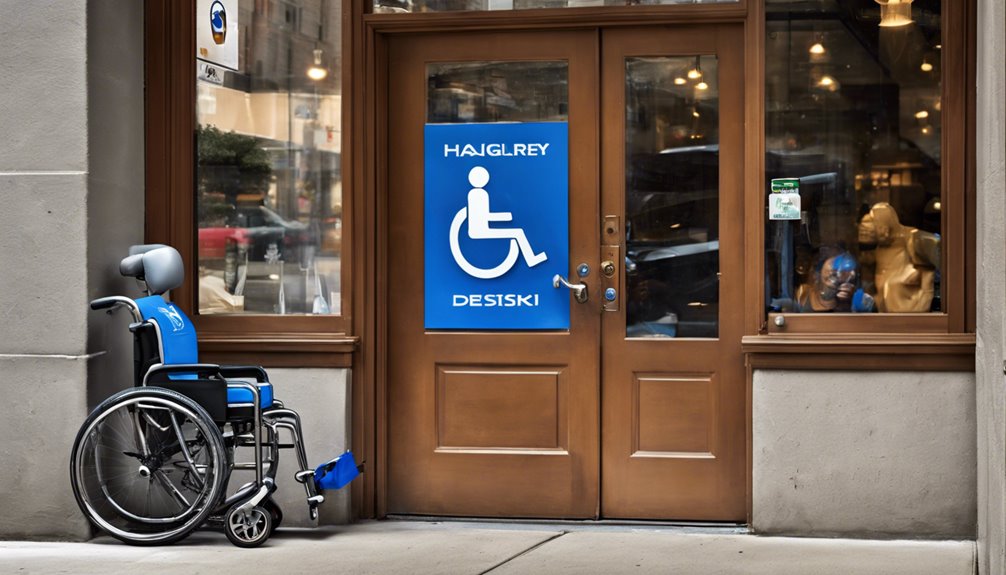
When it comes to running a business, understanding the importance of ADA compliance is crucial, especially if you want to guarantee that your establishment is accessible to everyone. Over 61 million Americans with disabilities represent a significant customer base, and by guaranteeing ADA compliance, you're welcoming this often-overlooked market into your business. An accessible environment not only improves customer satisfaction but also fosters loyalty, attracting families and friends who seek inclusive spaces.
Beyond customer access, ADA compliance offers legal protections. Non-compliance could lead to costly lawsuits and fines—up to $75,000 for the first violation and even higher for subsequent offenses. By adhering to ADA regulations, you mitigate the risk of legal challenges that could harm your finances and reputation. Additionally, ensuring that your locks meet high-security lock standards in New Jersey can further enhance your establishment's security and compliance.
Moreover, compliance enhances your brand image. It signals a commitment to inclusivity and modern customer care, earning you positive publicity and goodwill within the community. When people see you've made an effort to accommodate everyone, they're more likely to remember and support your brand.
Lastly, creating an inclusive workplace is essential. ADA compliance guarantees a safer, more accessible environment for employees with disabilities, attracting a diverse talent pool. This inclusivity boosts employee satisfaction and productivity, aligning your business with social responsibility values. For businesses in New Jersey, ensuring that your locks meet the state's lock safety standards is one way to enhance security and comply with regulations.
Key Features of ADA Compliant Locks
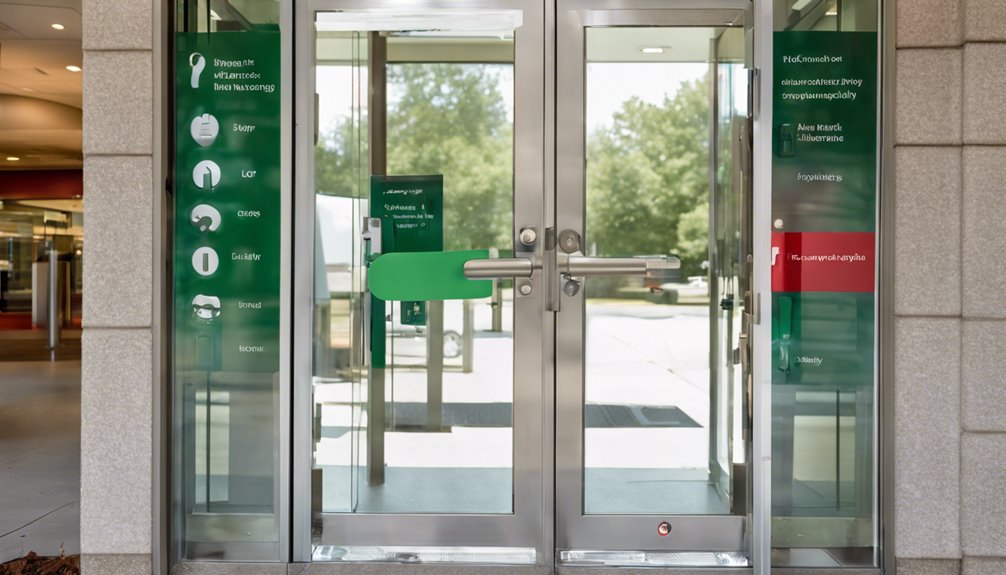
ADA compliant locks focus on one-hand operability, allowing you to easily access doors without requiring complex motions.
They're designed to operate with no more than 5 pounds of force, ensuring everyone, including those with limited strength, can use them effortlessly. In New Jersey, lock changes in residential properties must adhere to specific regulations to ensure tenant rights and safety. This combination of features not only enhances accessibility but also meets essential safety standards for all users. Additionally, the design of these locks promotes inclusivity and accessibility for individuals with disabilities, benefiting the entire community. To further ensure safety and compliance, locksmiths in New Jersey must follow specific steps to obtain the necessary licensing.
One-Hand Operability
To guarantee that locks are accessible and user-friendly, it's essential they're designed for one-hand operability. This feature not only promotes independence but also assures compliance with ADA standards.
Here are some key aspects to take into account:
- Single-Hand Operation: Locks must be operable with just one hand, making them easy for everyone to use.
- Easy Grasping: The shape of the hardware should allow for a firm grip without requiring tight grasping, pinching, or twisting of the wrist.
- No Simultaneous Movements: Locks should be designed so that users don't need to perform simultaneous hand and finger movements while operating them. In New Jersey, locksmiths play an essential role in ensuring these ADA standards are met during installation or modification.
- Smooth Edges: Assure that any edges or surfaces are smooth to avoid injury during operation. ADA locks are designed to meet these criteria, making them an excellent choice for businesses aiming for compliance. Ensuring that technicians are certified and licensed adds an additional layer of security and compliance with state regulations.
Utilizing lever handles, push-type mechanisms, or U-shaped handles aligns well with these requirements.
Installing locks at a specified height, between 34 and 48 inches above the floor, will further enhance accessibility.
Implementing these standards fosters an inclusive environment, empowering everyone to navigate your business seamlessly and independently.
Appropriate Force Requirement
Creating accessible environments goes beyond just ensuring that locks are operable with one hand; it also involves meeting specific force requirements. To comply with ADA standards, door locks and their mechanisms shouldn't require more than 5 pounds of force to operate. This maximum force must be applied continuously to open the door completely, excluding the initial effort needed to retract the bolt or release the mechanism. Certified locksmiths are available nationwide to ensure your locks meet these requirements, providing satisfaction guaranteed for all installations.
Meeting this requirement is essential for individuals with limited strength or mobility, ensuring they can confidently access your business. Additionally, the lock's installation height must fall between 34 inches and 48 inches above the finished floor, so everyone, including those in wheelchairs, can conveniently reach and operate it.
If you're considering electronic or automatic locks, remember that they're also bound by this force limit. Features like keypads, buttons, and sensors must be easily accessible and simple to use.
Keeping up with these requirements isn't just about compliance; it's about creating an inviting, inclusive space for all individuals. Regular monitoring can help you avoid legal ramifications while enhancing your community's freedom and accessibility. In New Jersey, understanding the duplication of keys is crucial for locksmiths to remain compliant with state laws and avoid legal issues.
Installation Height Requirements

When you're installing locks, height compliance is essential for ensuring accessibility for everyone. By adhering to the specified range of 34 to 48 inches above the finished floor, you help individuals using wheelchairs and those with mobility challenges access your business safely. This attention to detail not only meets ADA standards but also creates an inclusive environment for all users. In New Jersey, rekeying locks in rental properties involves specific legalities that both landlords and tenants should be aware of. It is important for New Jersey locksmiths(Understanding Lock Picking Laws for New Jersey Locksmiths) to be aware of legal regulations surrounding lock picking to ensure compliance and appropriate use of tools.
Importance of Height Compliance
Accessibility in New Jersey businesses hinges on adhering to specific installation height requirements for door hardware.
Ensuring your door hardware is installed within the mandated height range of 34 to 48 inches above the floor is essential. This not only complies with the 2010 ADA Standards but also enhances accessibility.
Here are four key reasons why height compliance is important:
- Inclusivity: The specified height allows individuals using wheelchairs and those with limited reach to easily operate door hardware.
- Ease of Use: Height compliance facilitates one-handed operation, minimizing the need for tight grasping or awkward wrist movements, making it user-friendly for all.
- Legal Compliance: Adhering to these height requirements helps avoid legal complications, protecting your business from potential lawsuits or reputational damage.
- Uniform Accessibility: Ensuring height compliance contributes to a consistent experience for all visitors, fostering an inclusive environment.
Additionally, locksmiths in New Jersey need to be aware of essential employment laws that govern wages, working conditions, and rights, to ensure fair practices and compliance within the industry.
Accessibility for All Users
To guarantee everyone can navigate your business with ease, proper installation height for door hardware is essential.
The Americans with Disabilities Act (ADA) specifies that operable parts, like handles and locks, should be installed between 34 inches and 48 inches above the finished floor. This height accommodates individuals in wheelchairs or with mobility challenges, ensuring they can access your facilities without barriers.
In New Jersey, compliance with federal ADA standards is mandatory, along with any state-specific regulations.
While states like California have a slightly narrower range, New Jersey follows the broader guidelines, affirming no operable parts exceed 48 inches.
This applies to door handles, latches, and locks in all public spaces, restrooms, and emergency exits.
Types of ADA Compliant Locks
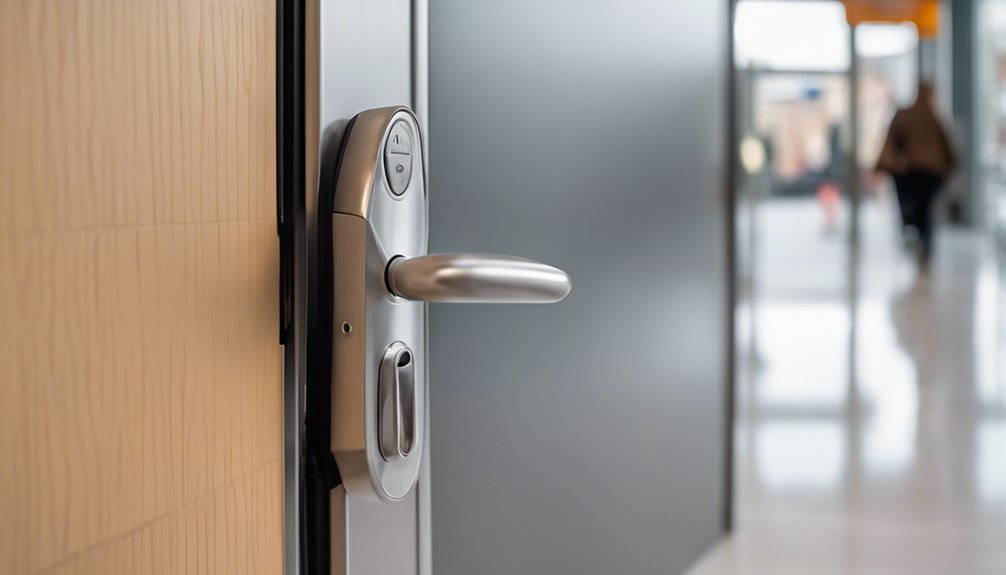
Understanding the various types of ADA compliant locks is essential for creating spaces that are inclusive for everyone. When selecting locks for your New Jersey business, consider the following options that guarantee easy accessibility for all individuals:
1. Lever-Operated Locks
These locks can be operated with one hand, requiring no tight grasping, pinching, or twisting of the wrist. They're commonly used in public spaces, ensuring that individuals with disabilities can access doors effortlessly.
2. Push-Type Mechanisms
This category includes push buttons and touchless systems, designed for ease of use without complex movements. They're particularly suitable for those with limited hand strength or dexterity, and they comply with ADA force requirements of less than 5 lbs.
3. Electronic and Automatic Locks
While offering modern convenience, these must still meet ADA standards. Keypads and buttons should be easy to operate, with smooth edges to prevent injuries. Consistency and intuitiveness are key, as they shouldn't require coordinated finger and hand movements.
4. U-Shaped Handles and Other Accessible Mechanisms
These handles are perfect for individuals who can operate locks with a closed fist or a loose grip. They're installed at accessible heights (34-48 inches) and allow doors to open with under 5 lbs of force.
Accessibility Standards Overview
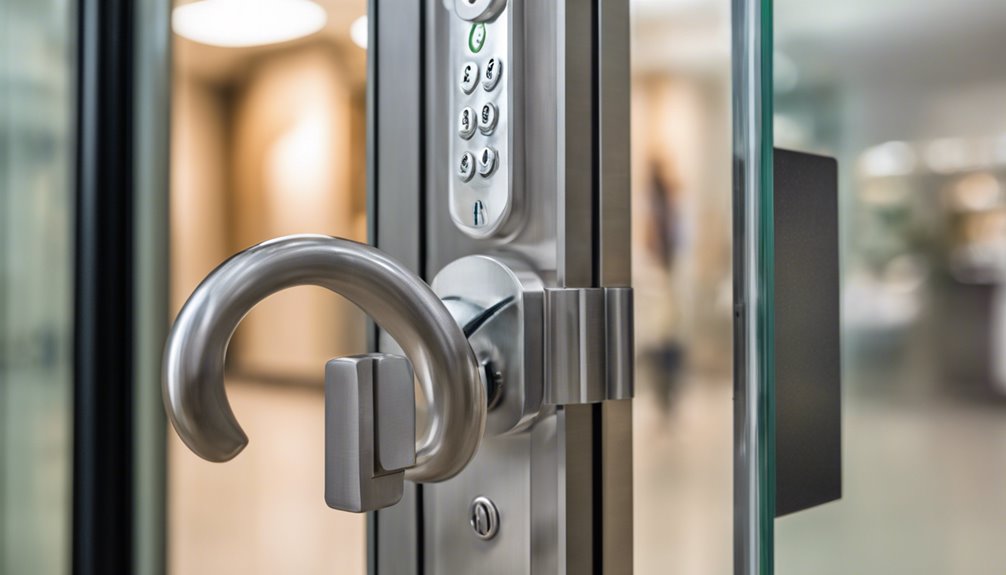
When planning your New Jersey business space, it's vital to recognize the ADA Standards for Accessible Design that dictate accessibility requirements. These standards apply to newly constructed buildings and facilities and also cover alterations that greatly impact usability.
If you're renovating an existing space, you'll need to make sure that any architectural barriers are removed, particularly those that are easily achievable, given your business's size and resources.
Architectural barriers hinder movement and access for people with disabilities. For instance, stairs at entrances can be a major obstacle. You must address these barriers whenever it's readily achievable—meaning changes should be practical and not overly burdensome.
The 2010 ADA Standards became effective on March 15, 2012, while the 1991 standards apply to facilities built or altered before that date. Familiarizing yourself with which version of the ADA Standards applies to your business is vital for compliance.
In New Jersey, the 2021 ICC codes have been adopted with updated accessibility standards to make spaces more user-friendly. These changes include larger turning radii for wheelchair access and additional wheelchair-friendly areas.
Local regulations, like the Barrier Free Subcode, provide specific guidelines aimed at enhancing accessibility. In addition, New Jersey prohibits discrimination based on disability and encourages the incorporation of proper web design techniques to guarantee all customers can access your services effectively.
Understanding and implementing these standards will help you create an inclusive environment for everyone.
Benefits of ADA Compliance
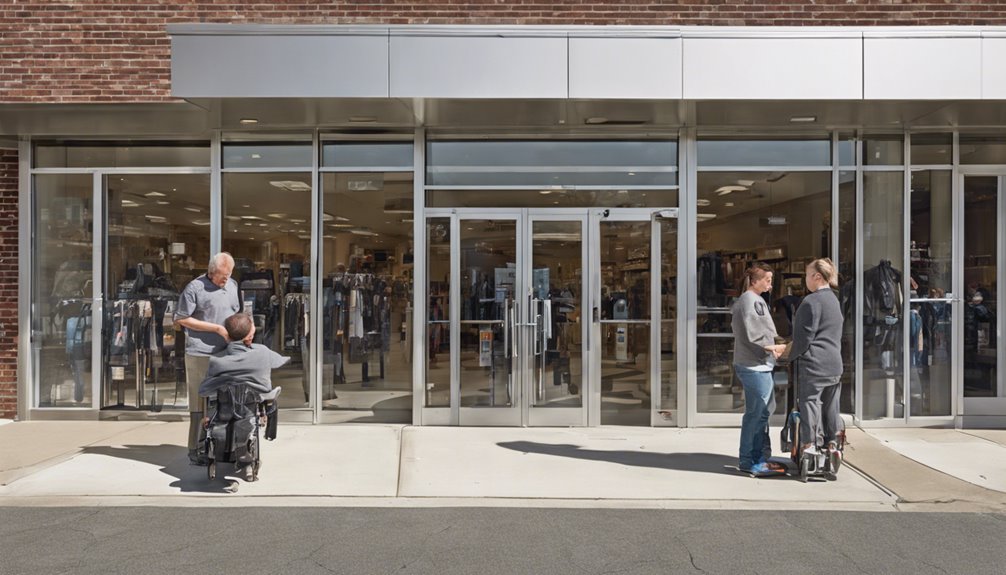
Implementing ADA compliance in your New Jersey business brings a range of notable advantages. By prioritizing accessibility, you're not just fulfilling a legal obligation; you're also unleashing a wealth of benefits that enhance your business reputation and financial success.
Here are four key advantages you can expect:
- Attract a Larger Customer Base: By making your business accessible, you'll tap into a $3 trillion market segment, including customers with disabilities and their communities.
- Enhance Brand Reputation: Demonstrating social responsibility through ADA compliance builds trust with your customers and attracts talented employees who value inclusivity.
- Increase Profitability: Businesses that embrace diversity, including employing those with disabilities, often report higher profits—sometimes twice that of their competitors.
- Foster Word-of-Mouth Advertising: Individuals in the disability community often share positive experiences within their close networks, leading to increased business through recommendations.
Additionally, you'll gain financial incentives like tax credits for accessibility improvements, which can greatly reduce annual costs.
ADA compliance also fosters a welcoming atmosphere that boosts employee morale and retention. A positive work environment improves productivity and reduces turnover costs, enabling you to focus on growth.
Enforcement of Compliance Guidelines
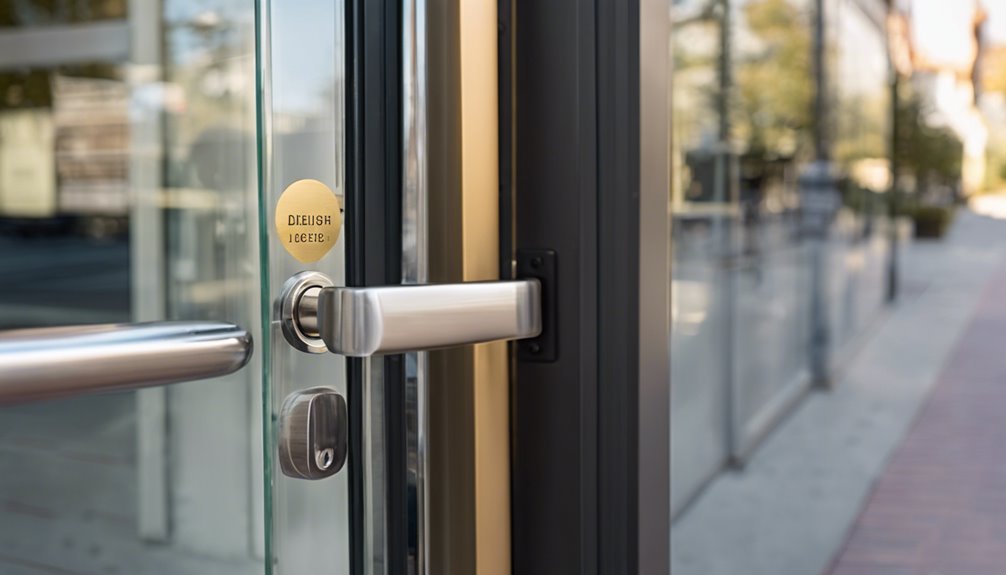
Although traversing the complex landscape of ADA compliance might seem intimidating, knowing how enforcement guidelines operate can greatly ease the process for your New Jersey business. The U.S. Department of Justice (DOJ) and the New Jersey Division on Civil Rights (DCR) play pivotal roles in this domain. They handle complaints and can pursue legal action to guarantee compliance if necessary.
You can file ADA-related complaints with either the DCR or the DOJ's Corporate Compliance Office. Once a complaint is lodged, investigations ensue to assess adherence to ADA standards. If non-compliance is identified, legal proceedings may follow, emphasizing the importance of having solid documentation demonstrating your compliance.
The regulations guiding enforcement are established by the DOJ and the Department of Transportation (DOT). Title II regulations apply to state and local governments, whereas Title III regulations pertain to public accommodations and commercial facilities. New Jersey's own laws, like the New Jersey Laws Against Discrimination, complement these federal guidelines.
It's essential to understand your ongoing obligations. You're responsible for maintaining accessibility features, making sure they're functional and compliant with ADA standards.
While no formal plan review process exists under the ADA, regular self-evaluations and compliance assessments are vital. Engaging in consistent evaluations, much like systems employed by localities such as Atlantic County, helps you stay on track with your accessibility goals, guaranteeing you're not only compliant but also welcoming to everyone in your community.
Common Misconceptions
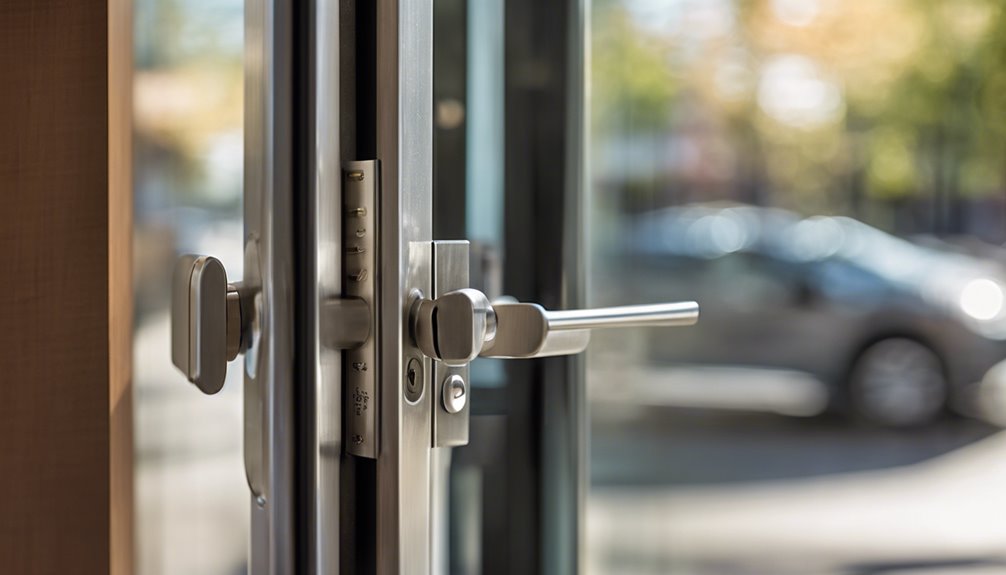
What misconceptions do many people have about ADA-compliant locks? You might think these locks are solely for wheelchair users, or that their design sacrifices security and aesthetics. Here are some common myths that need clarification:
- Limited User Focus: ADA compliance isn't just about accommodating wheelchair users. It guarantees accessibility for individuals with limited hand strength or dexterity as well, catering to a broad spectrum of needs.
- Security Concerns: Many believe ADA-compliant locks compromise security. In reality, these locks meet the same security standards as non-ADA versions and are designed for durability and ease of use without sacrificing safety.
- Aesthetic Limitations: There's a misconception that ADA-compliant locks are unattractive. However, modern designs come in various styles and finishes, allowing you to prioritize both functionality and appearance.
- Misunderstood Costs: Some assume ADA locks are only for large businesses, but even a simple change, like swapping a door knob for a lever, can improve compliance at a minimal cost.
The long-term benefits often outweigh initial investments, including potential savings on legal fees.
Steps for Implementation
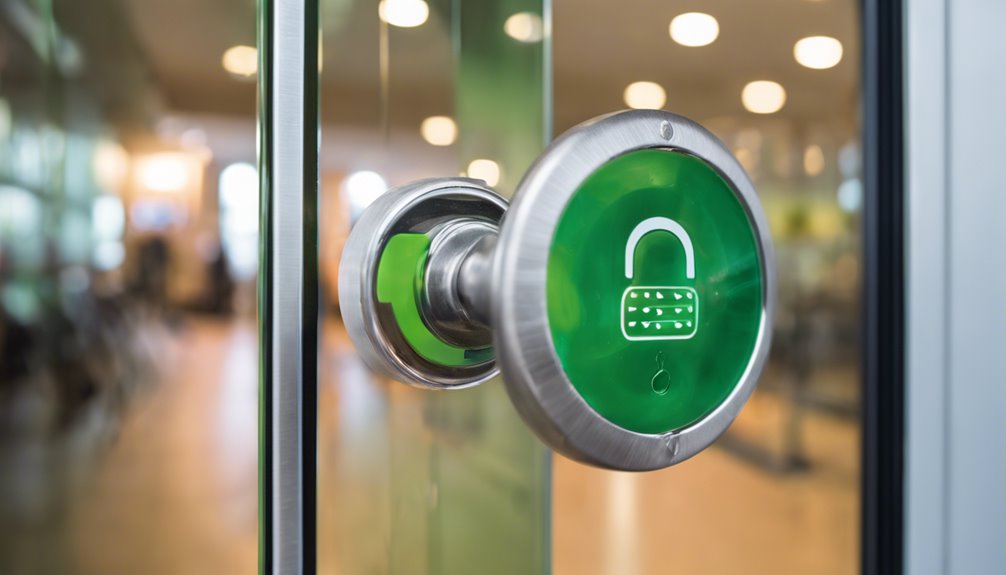
To guarantee your locks meet ADA compliance in New Jersey, you'll want to follow a series of structured steps that address both design and functionality. Start by evaluating your facility against ADA standards, ensuring locks are usable by individuals with various disabilities. Install locks that can be operated with one hand and minimal force, located at accessible heights.
Here's a quick reference table to help with implementation:
| Step | Action Needed | Outcome |
|---|---|---|
| Evaluate Compliance | Review current locks against ADA standards | Identify compliance gaps |
| Install Locks | Choose locks that require minimal effort | Enhanced usability for all users |
| Regular Maintenance | Schedule inspections and repairs | Maintained operable condition |
| Staff Training | Train employees on maintaining ADA-compliant locks | Improved access and compliance knowledge |
Ensure sufficient clearance around locks to prevent obstruction. Don't forget to incorporate visual occupancy indicators in family and assisted-use restrooms for clarity.
You must also maintain documentation of compliance actions and repairs. This will help demonstrate that you're committed to providing equal access for everyone and minimizing potential legal risks. Keep in mind that continuous improvement is key; you need to address any architectural barriers affecting accessibility.
Frequently Asked Questions
What Are the Costs Associated With Installing ADA Compliant Locks?
When you're considering installing ADA-compliant locks, you need to factor in the initial installation costs, which typically range from $150 to $160.
While these locks can be pricier due to their specialized design, they often provide long-term savings through increased durability and reduced maintenance needs.
Regular inspections and proper upkeep are necessary but won't greatly raise costs.
Do Residential Properties Need to Follow ADA Lock Guidelines?
Imagine a key that opens not just a door, but the freedom for all.
Residential properties, especially multifamily ones built after March 13, 1991, must adhere to certain ADA guidelines, ensuring adaptability rather than full compliance.
You'll need accessible routes, usable doors, and features in common areas to accommodate residents with disabilities.
While individual units aren't fully bound, maintaining accessible features is essential for fostering an inclusive community spirit.
Are There Specific Brands Known for ADA Compliant Locks?
Yes, several brands are known for ADA-compliant locks.
Lowe & Fletcher offers electronic locks designed for accessibility, while Vizilok provides commercial-grade privacy indicator locks that feature one-touch operation.
Kwikset's Safe Lock comes with user-friendly push buttons available in various finishes.
These brands guarantee that their products enhance accessibility and usability for everyone, making them excellent choices if you're looking to verify compliance and create an inclusive environment.
How Often Should ADA Lock Compliance Be Reviewed?
You should review ADA lock compliance at least annually. This verifies that all locks function correctly and meet accessibility standards.
Additionally, conduct checks after any renovations to confirm compliance remains intact. Listening to user feedback is vital, as it helps identify issues promptly.
Staying updated on any changes in regulations is also important for maintaining compliance. Engaging professionals for regular assessments assures that your locks continue to support accessibility for all.
What Sanctions Exist for Failing to Comply With ADA Lock Regulations?
Failing to follow fundamental ADA regulations can face serious sanctions.
You might incur hefty fines and face legal repercussions from federal and state agencies. Your business could also suffer significant reputational damage, losing loyal customers who value accessibility.
Additionally, non-compliance can lead to mandatory modifications, forcing you to invest time and resources in corrections.
In extreme cases, your business permits may even be suspended or revoked, jeopardizing your operational freedom.
Conclusion
By embracing ADA compliance for locks in your New Jersey business, you're not just ticking boxes; you're opening doors to a world of inclusivity and responsibility. With the right locks installed at accessible heights and requiring minimal effort, you're making a statement about your commitment to all customers. Remember, regular maintenance and employee training are key to keeping those doors open wide. So, let's turn compliance into an opportunity for growth and enhance your welcoming atmosphere.

